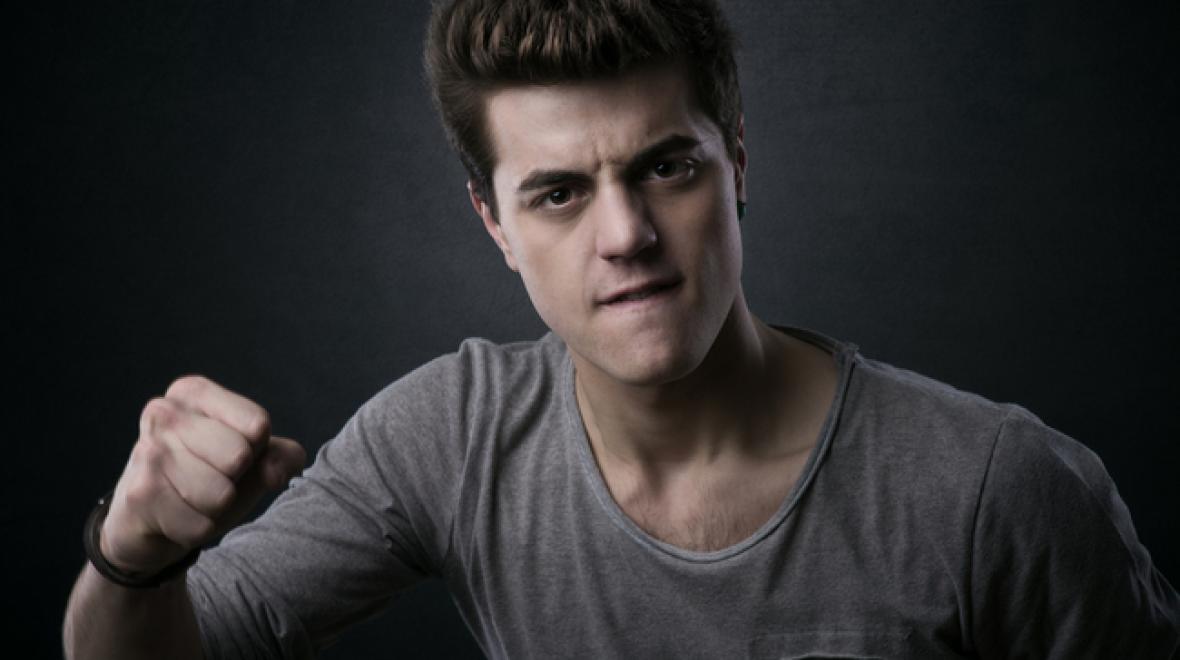
As a mom to seven kids, three of whom are teenagers, I've had my share of surprising parenting experiences. I've grappled with how to handle alcohol, sex and mental illness, and I've often found myself challenged by the emotional labor of raising kids. But at no point did I expect to have to talk to my kids about Nazis in 2017.
Earlier this week, a video surfaced of a man wearing a Nazi armband getting punched in downtown Seattle. The video quickly went viral, and it ignited plenty of controversy among my friends on social media. As liberals, does the tolerance we preach always require non-violence?
More and more, I find myself saying no.
After the tragic events that took place in Charlottesville last month, I took my kids to a protest against Nazis in Westlake Park. Before we arrived, one of my teenage sons told me repeatedly that if he saw Nazis, he would punch them. He wasn't a fan of violence, he told me, but he doesn't view physical violence as always worse than other types of violence. I wanted to argue, but I quickly found myself stumped: I know that emotional abuse is as harmful as physical abuse, so why was I so quick to decry physical violence?
Hate speech and hate crimes, or even adopting the ideology of groups like white supremacists who promote hate, are a form of violence — I know that much. And while everyone has the right to free speech, that doesn't absolve them of the consequences of their speech. On balance, I care far more about the rights of people of color to live free from hate speech and racial violence than I care about the rights of Nazis to walk through the streets without being confronted, challenged and — dare I say it — even getting punched.
I like to think of myself as pro-peace and anti-violence, but when I do nothing in the face of the violence of hate speech and white supremacy, I am promoting violence. There are other ways to fight Nazis without punching them, of course, but it's a false equivalency to equate the type of systemic violence white supremacists inflict to the type of violence done when one person punches a Nazi.
Besides, there are consequences for punching someone. If the police find the person who punched the Nazi in Seattle, they'll be arrested. There are already systems in place to handle this type of violence. What's lacking is systems that hold white supremacists and Nazis accountable for the type of violence they inflict on people of color.
It's a false equivalency to equate the type of systemic violence white supremacists inflict to the type of violence done when one person punches a Nazi.
In the end, my son didn't punch any Nazis. We attended the rally, and the only violence we witnessed was inflicted by the police against the protestors. We watched as the police encircled the white supremacists for their protection, and threatened the protesters with clubs and tear gas. On the news that night, I saw video of the police tear-gassing the protesters as they attempted to make their way to Westlake Park, where the white supremacist rally was being held.
My son was disappointed that he didn't have the chance to punch any Nazis. And while I was relieved that he didn't, I'll admit that I cheered when I saw the video of one being punched online. Violence isn't always the answer, but I've been kidding myself that my own behavior has always been non-violent.
There are many ways to take a stand. But for the first time, I recognize that hiding behind a mask of tolerance and non-violence is another way I, as a white liberal, contribute to white supremacy and its violence.











